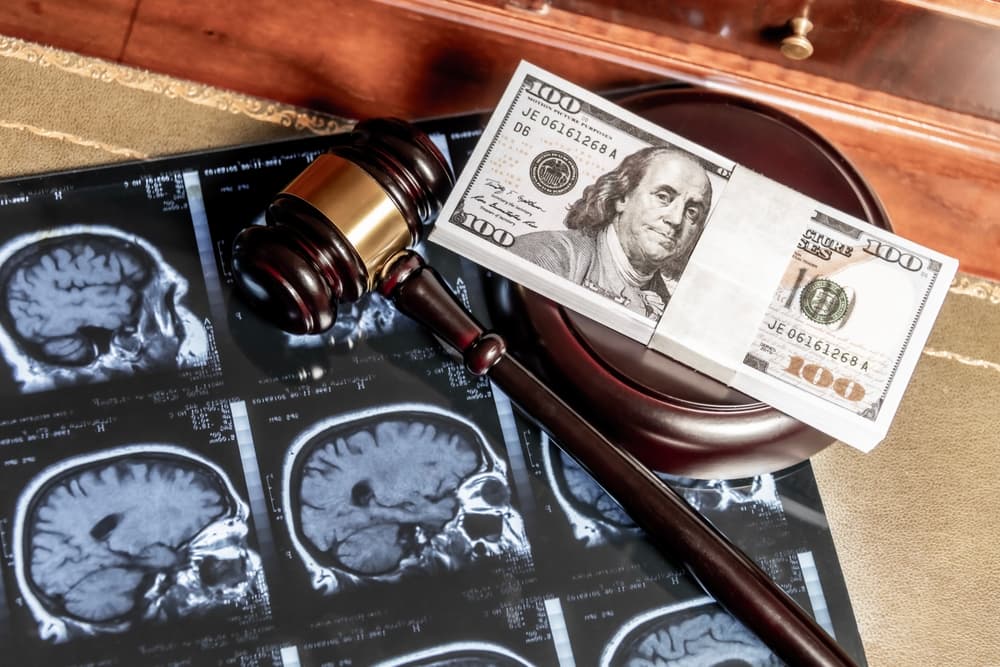You can prevent traumatic brain injuries (TBIs) with a healthy regard for others’ safety. Because traumatic brain injuries can happen in so many different settings and ways, there are a near-infinite number of steps that may, in the short or long run, prevent serious brain injuries.
Some common steps that may prevent a TBI include driving cautiously, monitoring a property for slipping hazards, and removing a player from a game when they show signs of a possible concussion. If you or a loved one suffered a TBI and you believe that someone’s negligence caused or allowed the injury to happen, consider hiring a traumatic brain injury (TBI) lawyer to seek compensation for your injury-related damages.
Common Causes of TBIs—and Techniques That Can Prevent Them
Many types of brain injuries often result from negligence, and those are the kinds we will focus on. These are the types of TBIs that often lead to insurance claims and lawsuits, and these injuries can result from:
Traffic Accidents
Some common ways that those responsible for car, truck, motorcycle, bicycle, and pedestrian collisions might prevent those accidents include:
- Driving the speed limit
- Maintaining a safe distance from other vehicles, bicyclists, pedestrians, and others who might be involved in an accident
- Remaining alert at all times (and avoiding all distractions)
- Being sober and emotionally steady whenever driving
- Ensuring the vehicle is in good working condition
Vehicle-related collisions are one of the leading causes of brain injuries. Despite most drivers knowing the dangers of distraction, aggressive driving, and unsafe vehicles, motorists are often responsible when collisions occur.
Sports Injuries

Sports injuries are another common cause of brain injuries, especially considering the delicate nature of the developing brain. A coach, trainer, school, or other liable party may be responsible if they fail to:
- Hire those (especially trainers) who understand the causes, symptoms, and appropriate responses to traumatic brain injuries.
- Emphasize a safety-first culture, specifically when it comes to reporting and treating brain injuries with care.
- Order immediate testing if an athlete shows brain injury symptoms.
- Remove players from competition immediately if there is any question they are suffering from TBI symptoms.
Sports and recreational activities produce about ten percent of traumatic brain injuries in the United States annually. At this point, there is no excuse for coaches or others responsible for athletes to overlook (intentionally or not) the symptoms of brain injuries.
Premises Liability Accidents
Several types of accidents can happen on dangerous properties, and many of these accidents can result in brain injuries. Some examples of such accidents include:
- Trip and fall accidents
- Slip and fall accidents
- Physical assaults allowed because of the negligence of security
- Accidents involving falling items
If a property owner or another liable party creates or fails to remedy conditions that lead to a brain injury, they (and their insurer) can be liable for a victim’s injuries and damages.
Boating Accidents
Boats can be hazardous for several reasons, including if:
- The boat or boat components are defective
- The boat driver is impaired
- The boat driver engages in unsafe driving practices, like speeding in shallow water or turning abruptly
- The boat driver is reckless when towing someone behind the vessel
If a boat driver, owner, or other liable party violates their duty of care to protect others, they can be liable for their negligence.
Mistreatment of the Elderly
Some populations are especially vulnerable to the circumstances that can cause brain injuries. They are similarly vulnerable to the effects of brain injuries, which may be more likely to cause long-term and even fatal symptoms. The elderly are near the top of the list of such high-risk populations.
Those who endanger the elderly—including their caregivers in medical and assisted living—have no excuse for doing so. They, as well as their employers, are often liable when an elderly victim suffers a TBI. Prioritizing patient safety, monitoring caregivers, and swiftly punishing anyone who mistreats the elderly are all best preventative practices.
Negligence: The Standard for Liability After a Brain Injury Happens
When someone suffers a traumatic brain injury, it’s necessary to examine the cause of that injury closely. Personal injury lawyers are among those who are often qualified to examine these injuries, as they know what negligence looks like—many of them see it daily in the course of their job.
Negligence may have been the cause of your or your loved one’s TBI if:
- There was a party who owed you or your loved one a duty of care: Someone who has a duty of care—from car drivers to football coaches and property owners—must act with reasonable care. This includes doing everything in their power to reduce the likelihood of someone suffering a brain injury.
- That party did not honor their duty of care: If the negligent party fell short of their duty to protect another from suffering a TBI or suffering worsening symptoms of a TBI, they may have breached their duty of care. Your attorney may identify such a breach of duty of care through witness accounts, your account of how you suffered a TBI, and other relevant evidence and information.
- The breach of duty of care caused the brain injury: Your attorney will work to establish a direct link between the liable parties’ negligence and the brain injury your case centers on. They may once again use evidence, expert testimony, your account, and other relevant information to establish the connection.
- The victim can prove damages because of the brain injury: When your lawyer has shown the cause of the TBI, they will prove the damages you’ve suffered because of the at-fault party’s negligence.
The circumstances surrounding each TBI are unique. Your lawyer will use all the evidence and expert testimony available to them. They will create an argument tying together such evidence as they argue that your brain injury was the consequence of someone’s negligent behavior.
Essential Steps to Take After You or a Loved One Suffers a TBI
It can be difficult to think after suffering a brain injury, so these instructions are simple. While you may have your own personal obligations to handle, two of your priorities should include:
Getting Treatment for Your TBI

Guidelines from medical authorities make it clear: those with symptoms of a brain injury should seek immediate care. You may need:
- Medical imaging (including a computed tomography scan)
- A neurological exam
- A physical exam
- A period of observation
Surgery and hospitalization can even be necessary in cases of urgent injuries. If the TBI causes any brain damage or other long-term symptoms, rehabilitation can become part of your treatment plan.
Seeking Care for Any Psychological or Emotional Challenges You’re Facing
Brain injuries can affect your mood, personality, and emotional stability. While some of these symptoms may require physical healing to subside, some forms of treatment can also help.
Your health and your case may benefit if you:
- Seek help from a neurologist, counselor, or other qualified professional about any emotional or psychological symptoms you’ve experienced
- Get thorough documentation for such symptoms
- Follow these professionals’ advice about how to treat these TBI-related symptoms
If you are unsure of where or when to seek such care, a lawyer can help.
Finding a Lawyer to Fight for the Money You Deserve
Hiring a lawyer isn’t just about obtaining money for a TBI. Money can be your means to pay for much-needed treatment, cover lost income (and any loved ones who depend on it), and put your life back together after a severe injury.
You may trust a traumatic brain injury lawyer to pursue compensation for you because:
- Attorneys have experience handling cases like yours; you just have to identify a law firm that has successfully led TBI-specific cases.
- Law firms provide critical financial support to brain injury victims, which may include covering administrative fees, expert fees, medical costs, and a host of other case-related expenses.
- Having a source of reliable advice is priceless, as many brain injury victims are uncertain of how to proceed (especially when it comes to seeking compensation).
- There is no out-of-pocket cost to hire your lawyer, as most brain injury attorneys offer their services on contingency—which means they don’t receive a fee unless they secure compensation for you.
If someone fails to prevent your TBI, it’s only fair that you receive compensation for your economic and non-economic damages. Find a lawyer whose legal background, financial resources, and case results suggest they can get the compensation you deserve.
A Brain Injury Lawyer Will Lead Your Case—Every Single Step

You must be careful not to overexert yourself after a brain injury. Exposing yourself to too much stress can stall your physical recovery, negatively affect your mental health, and have negative consequences for the outcome of your case. Let a lawyer help.
You should expect a brain injury attorney to manage every single detail of your case, which will likely include:
Identifying and Documenting the Cause of Your TBI
Whether a brain injury happened on the athletic field, in a department store, or in a motor vehicle, your lawyer will investigate the cause of the TBI and secure all evidence related to that cause. Such evidence may include:
- Your statement about how the TBI happened
- Witness statements about the TBI
- Any relevant video footage, including footage capturing a fall, hit to the head, accident, or other event that caused the injury
- Any relevant expert testimony about how and why the accident happened
Attorneys know how to prove the connection between at-fault parties’ negligence and brain injuries, and they forge that connection using evidence.
Determining Fault (and Liability) for the Injury
As your lawyer investigates how your brain injury happened, they will figure out who is responsible for the injury. Your lawyer will determine who caused the injury and who should pay for the injury—in certain cases, this is the same party.
Establishing Your Case Value
Attorneys generally seek a specific amount of money for clients with brain injuries. This means they must determine the precise financial cost of the client’s damages, which will lead them to a total case value.
Pressing for a Fair Settlement (and Making a Case for Why You Deserve It)
Once your attorney is certain of your case value, they can seek fair compensation from liable parties. Some parties who may owe a brain injury victim compensation include:
- One or more insurance companies (in a car accident case, for example, a TBI victim may deserve compensation from both their insurance provider and a third-party provider)
- Parties directly responsible for causing the TBI (your lawyer might sue an at-fault motorist who caused your accident, for example)
- A party who is not directly at fault for causing the TBI but who is still liable (the school that employs a coach who ignored a player’s brain injury, for example)
An experienced brain injury lawyer will know how to identify liable parties, determine their financial responsibility, and present settlement demands convincingly.
Handling Any Necessary Lawsuit, Trial, and Related Legal Proceedings
There are cases in which suing one or more liable parties is the right decision for a brain injury victim. As your lawyer forms a case strategy and explores settlement options, they may advise that filing a lawsuit can be worthwhile.
If you elect to file a lawsuit against any parties responsible for your TBI, your attorney will oversee the legal process for you.
Damages That Can Factor Into the Cost of Your Brain Injury

You might elect to sue because of the high cost of brain injuries. Liable parties are not always willing to pay fair compensation for a TBI, which can include costs related to:
- Medical treatment
- Pain and suffering
- Lost income and other professional damages
- Any property expenses related to the TBI, like vehicle repairs
When brain injuries are disabling, the cost of the victim’s injuries may rise significantly. Your attorney will create a case—and financial demands—that reflects your unique profile of damages.
Now Is the Time to Hire a Brain Injury Lawyer
The sooner you hire your lawyer, the sooner you can turn your attention to recovery without worrying about your case. There are also deadlines governing many brain injury lawsuits, and you must be intentional about beating those filing deadlines—start by retaining your personal injury attorney as soon as possible.



